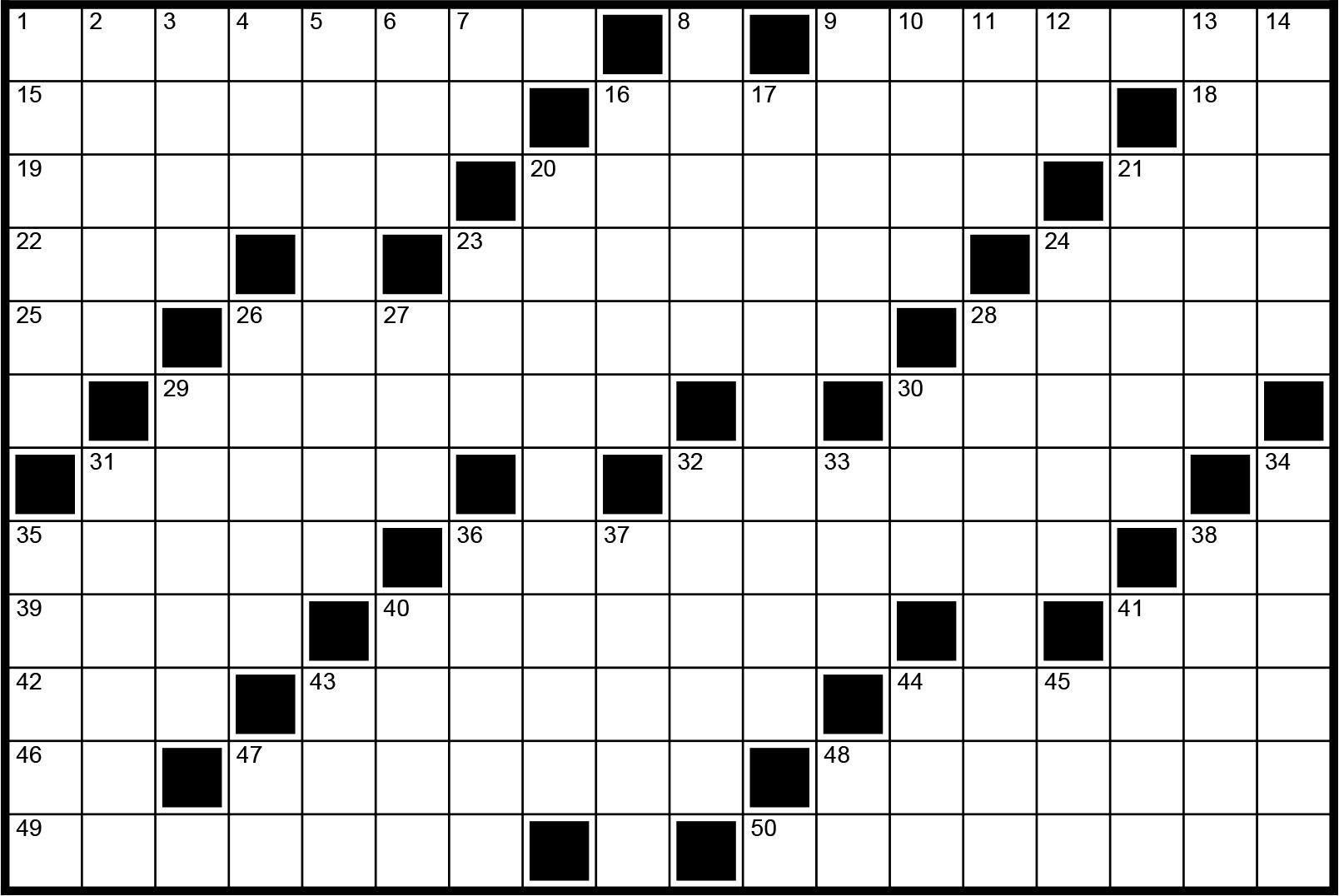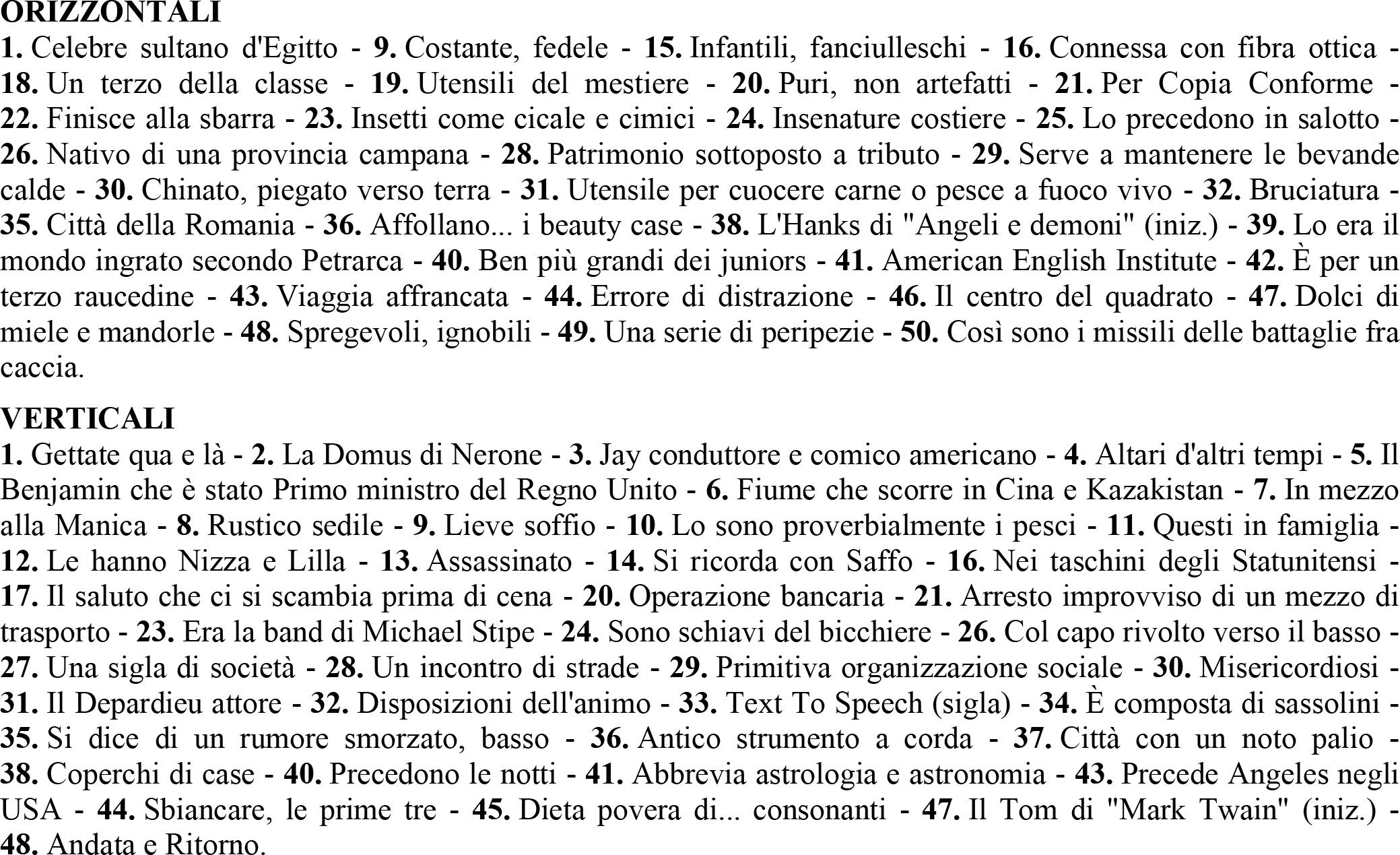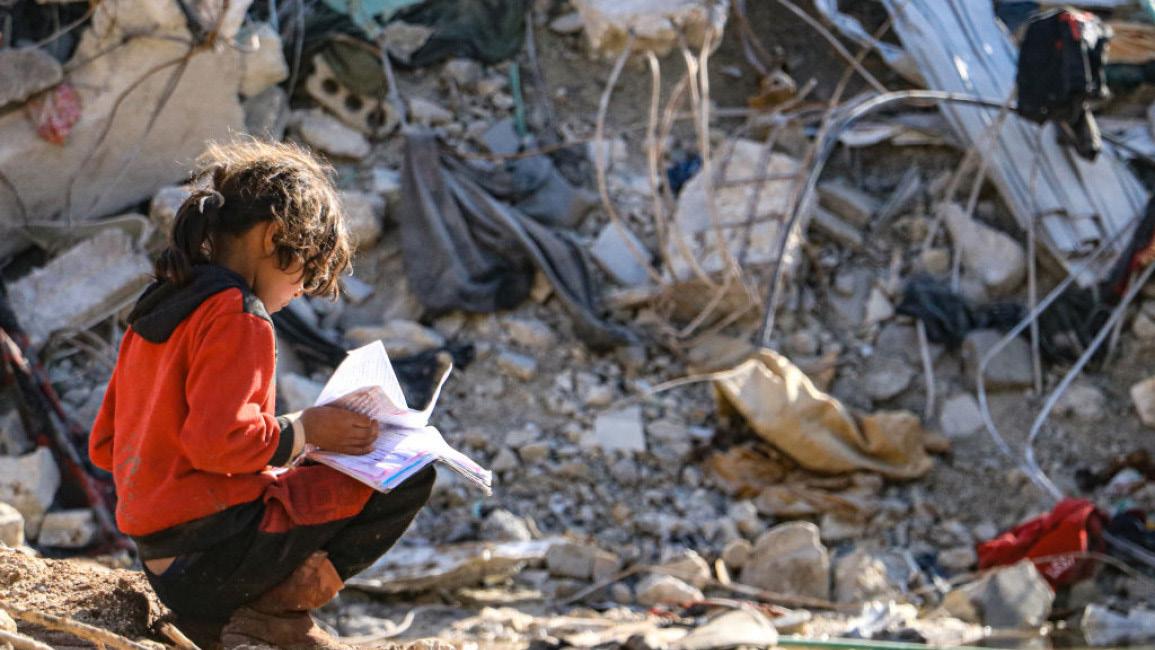
4 minute read
Earthquake and selective humanitarianism
Not only did that make the people extremely vulnerable to the elements, but also limited the efficacy of any relief efforts.
While the humanitarian crisis has impacted all of Syria, the situation in the north has been particularly dire, made a lot more desperate by the earthquake, which also coincided with freezing winter temperatures.
Advertisement
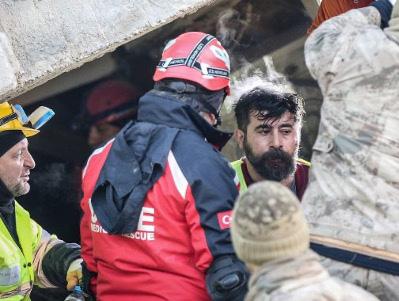
by Emad Moussa
With a 7.8 magnitude, the Turkey-Syria earthquake caused multi-storey buildings to crumble like a stack of cards and roads spilt up as if they were made of butter.
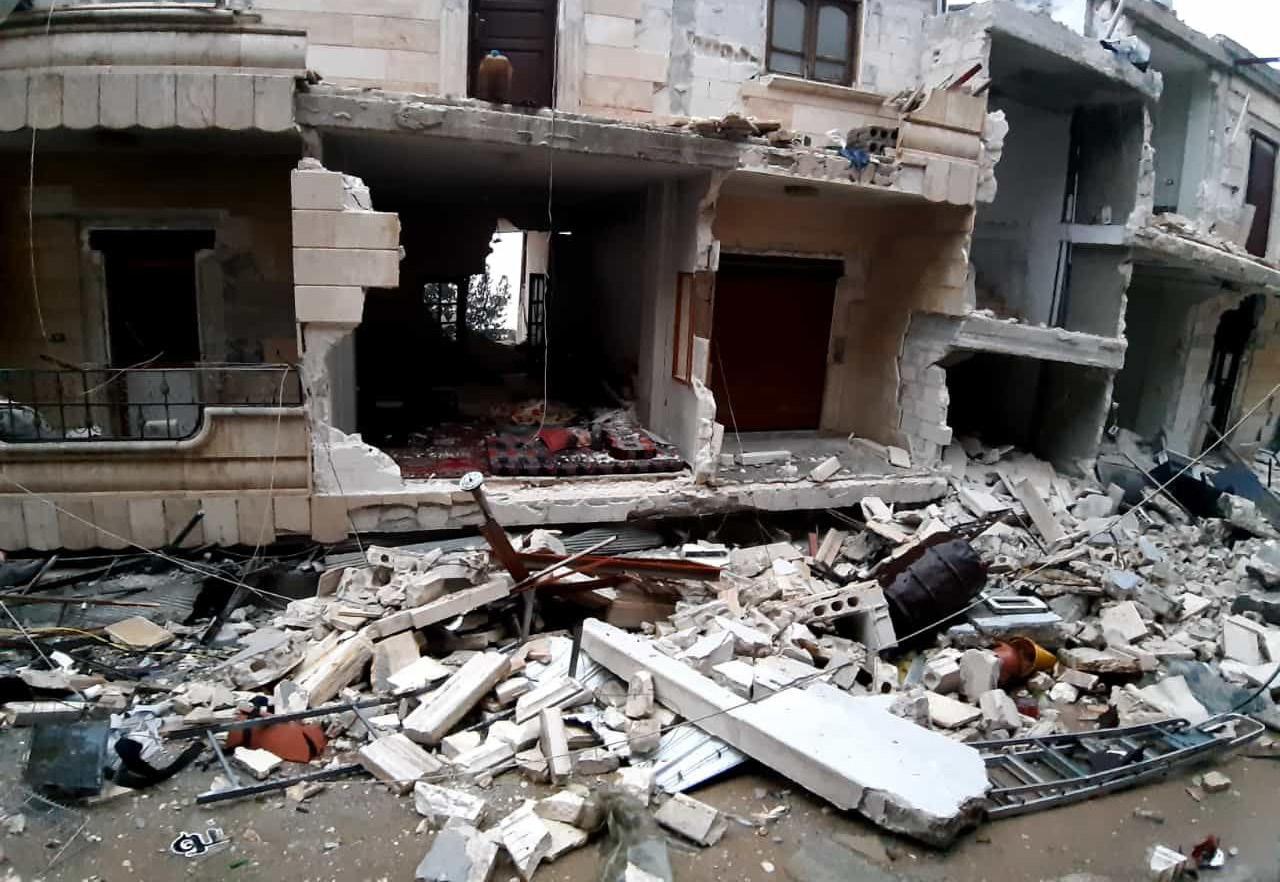
Bodies of the victims protruding from underneath the collapsed structures painted a horrifying picture of their last moments as they tried to save themselves and their families. Hundreds are still unaccounted for. And as the dust is yet to settle, the disaster is potentially on track to become one of the most devastating in decades.
The last time Turkey experienced an earthquake of a serious scale was in 1999. It hit the country’s Kocaeli Province with a catastrophic magnitude of 7.4, claiming the lives of over 17,000 people.
''The relief complexities in northern Syria also came to test the limits of human empathy. It came to prove that, indeed, some disasters are more worthy of humanitarian intervention and media coverage than others. Not by virtue of their gravity or severity, but by the assumed ethnic, political, or social value of the humans experiencing them.''
Syria’s last devastating earthquake, known as the Aleppo earthquake, took place in 1138. It is now deemed the third deadliest earthquake in recorded his- tory - after China’s 1556 Shaanxi and 1976 Tangshan earthquakes - and is believed to have killed around 230,000 people.
But today’s Syria is more complicated geopolitically speaking. The situation in north-western Syria in particular, where some of the worst-hit regions exist, is the home of millions of people already forcibly displaced by the civil war. Of the 11,000 dead so far, about 2,500 fatalities have been reported in Syria.
One can only imagine how Syrian relief workers in the opposition-controlled regions felt having to reuse the skills they acquired rescuing civilians from Assad’s airstrikes, to then pull people out from underneath the earthquake-struck buildings.
Nearly one-third of the homes in Aleppo and Idlib, according to a 2017 report by the World Bank, had already been damaged or destroyed by the conflict. Now the destruction is a lot more extensive, adding to the $120 billion in infrastructure damages since 2011.
The losses to Syria’s GDP have since been estimated at $268 billion. 150% inflation rate and a multi-fold increase in prices, droughts, and the destruction of water infrastructure in the past two years especially, pushed nearly 90% of Syrians below the poverty line and shattered food security and livelihood.
Terremoto a Siena
Those who escaped the widespread destruction found themselves unable to access medical care due to already exhausted and depleted health services.
Reportedly, hospitals in the area have been receiving new patients hourly, mostly children. People filled the hallways and were treated on the floor. This was exacerbated by a huge lack of staff and equipment.
Politicising a tragedy
One would expect that a humanitarian calamity of such scale would render irrelevant - or at least alleviate - any political rivalries or obstacles. But, as events continue to unfold, this does not seem to be the case. Alas, we are once again faced with the grim politicisation of humanitarianism which continues to undermine people’s access to basic human rights.
Western sanctions on Syria have been cited as one of the obstacles blocking a proper and supplemental delivery of aid that would provide immediate relief for those in need in the earthquake-stricken regions.
What complicated the situation further is the closure of the Bab al-Hawa crossing between Syria and Turkey due to earthquake damage to the roads around it. The crossing has been the only UN-approved route for aid over the past nine years.
It means that despite the unprecedented emergency, the Assad regime remains resistant to allowing aid into the opposition-controlled region. He fears the aid will undermine Syrian sovereignty and limit the government’s chances of regaining control of the region.
* Dr Emad Moussa is a researcher and writer who specialises in the politics and political psychology. Opinions expressed in this article remain those of the author and do not necessarily represent those of Alloranews, its editorial board or staff.
Six saved after 100 hours
By Kate Mayberry and Joseph Stepansky
The death toll from the Turkey-Syria earthquakes has passed 21,500.
At least 18,342 people have been killed in Turkey, according to the country’s officials - surpassing the toll from the devastating 1999 earthquake in that country.
At least 3,377 people are known to have died in Syria.
The World Bank has promised $1.78bn to Turkey in relief and recovery assistance.
UN chief Antonio Guterres is calling on the international community to provide more money for earthquake relief and has announced a donor conference for next week.
Catholic leaders call for halt to Syria sanctions in earthquake aftermath
BOLOGNA - La terra trema nella zona di Siena: c’è stata una forte scossa alle 21.51 (magnitudo 3,5) e poi nella notte ci sono state molte scosse di assestamento, con movimenti tellurici che si sono ripetuti a decine con magnitudo fino a 2,7.
L’epicentro è stato localizzato a circa un chilometro dal capoluogo, la scossa più rilevante è stata avvertita anche da alcuni cittadini residenti nel Chianti e nella Val d’Elsa. In via prudenzia- le le scuole e i due atenei universitari resteranno chiusi oggi in città.



I vigili del fuoco e i tecnici nella notte sono stati chiamati a verificare una ventina di segnalazioni, come riferito dal presidente della Regione, Eugenio Giani, che via social ha aggiunto: “Comprendo la paura dei cittadini che vorranno trascorrere la notte fuori, per questo il sistema di protezione civile è attivo e pronto a offrire assistenza”.
Australian representatives of the two largest Catholic communities in war-torn Syria will call on the Federal Government to halt sanctions on the country, to improve the flow of aid after Monday’s devastating earthquakes.
As the death toll from the over-seven magnitude earthquakes continued to soar past 25,000 across parts of south- ern Turkey and northern Syria, Monsignor Basil Sousanian and Bishop Robert Rabbat shared with The Catholic Weekly their concerns that Syria won’t get the help it desperately needs.
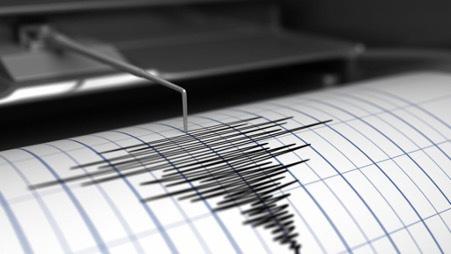
More than a decade of civil war, ongoing western economic sanctions and complex internal and regional divisions are hampering the initial rescue and aid efforts in the affected areas.





